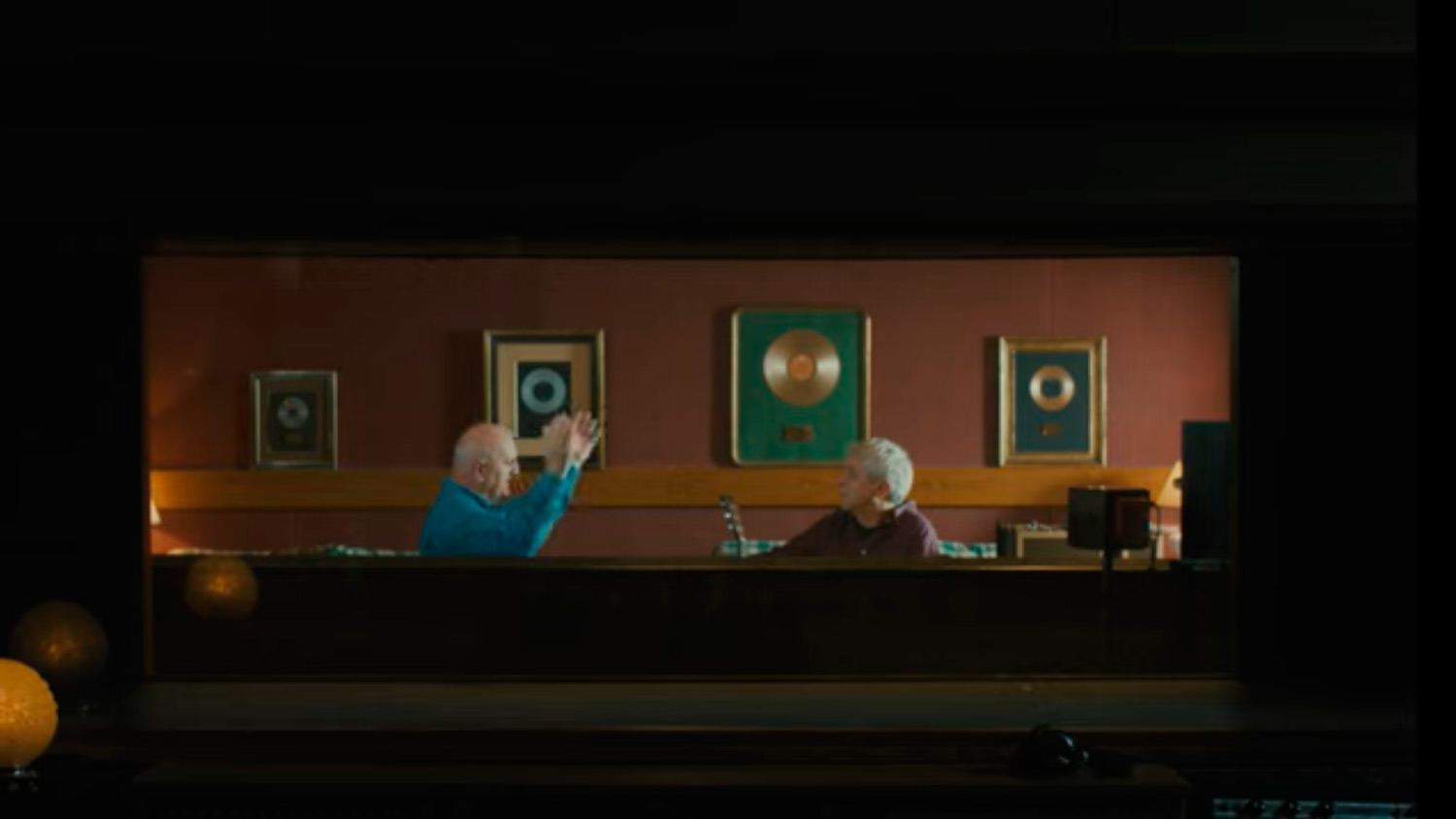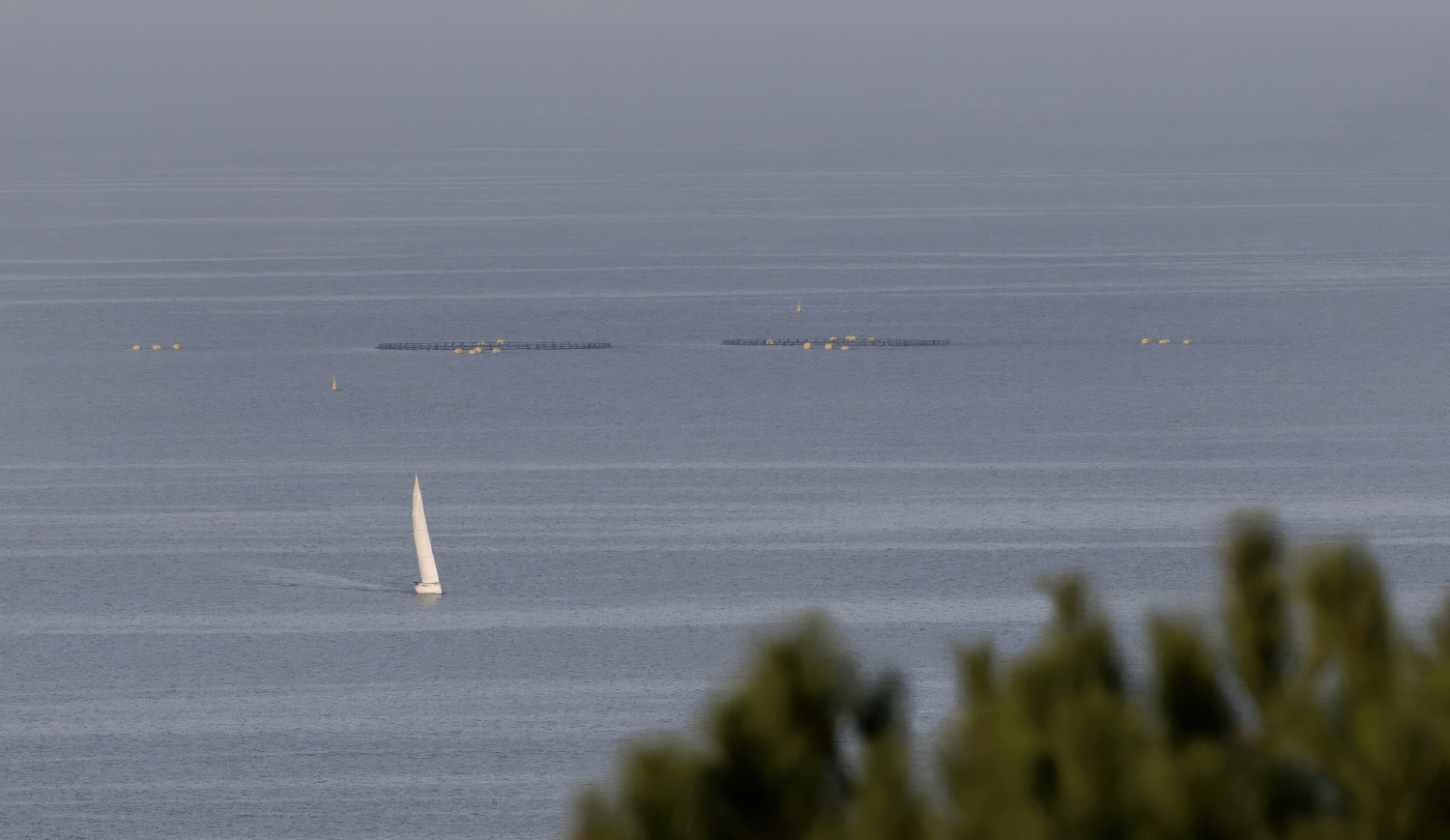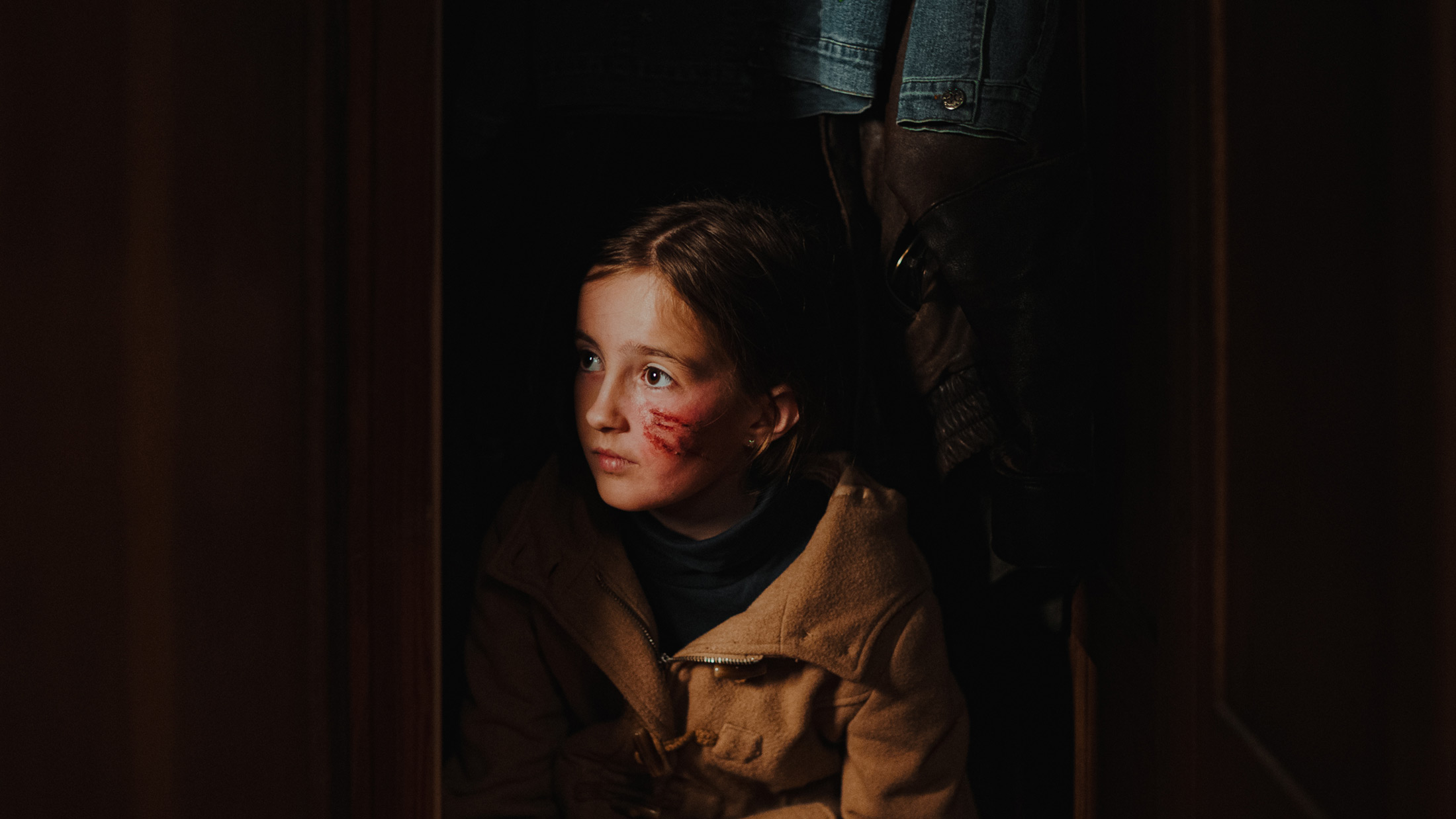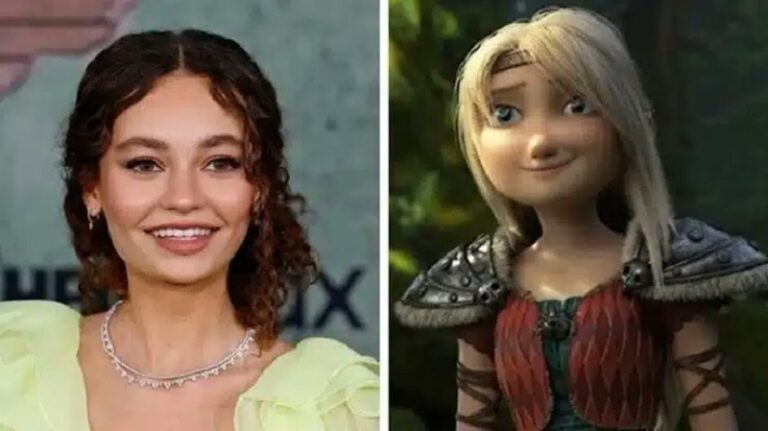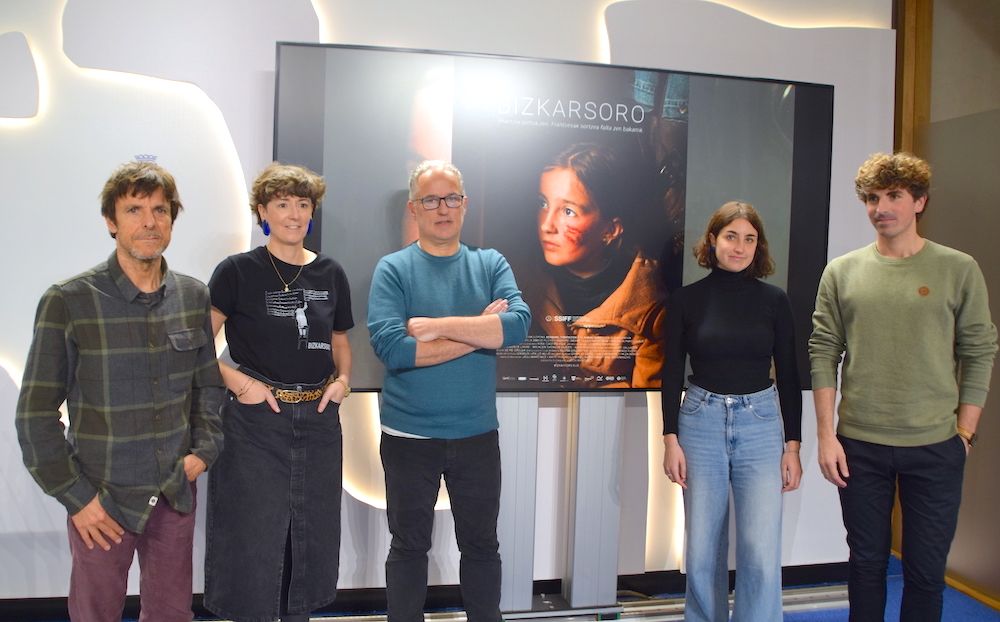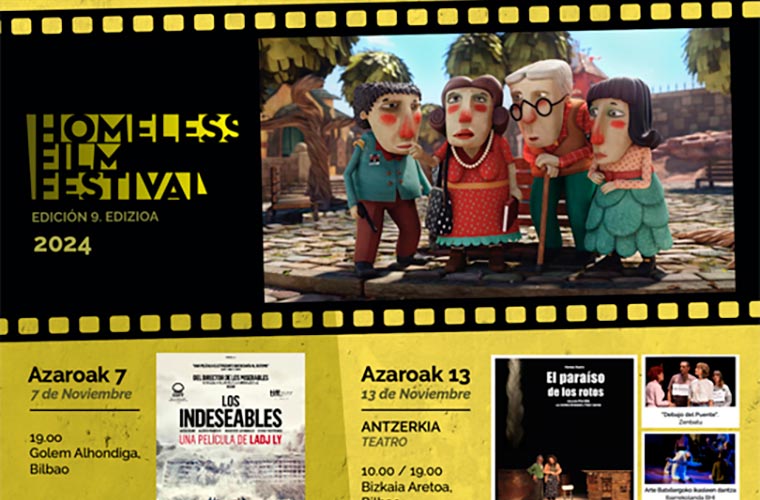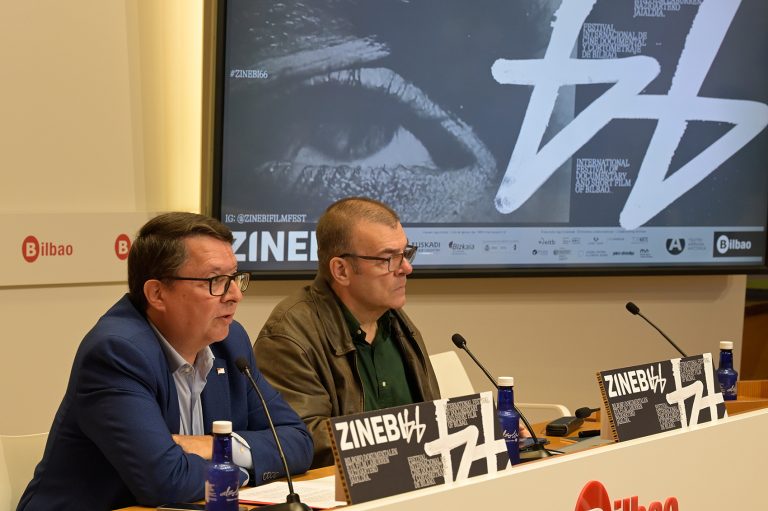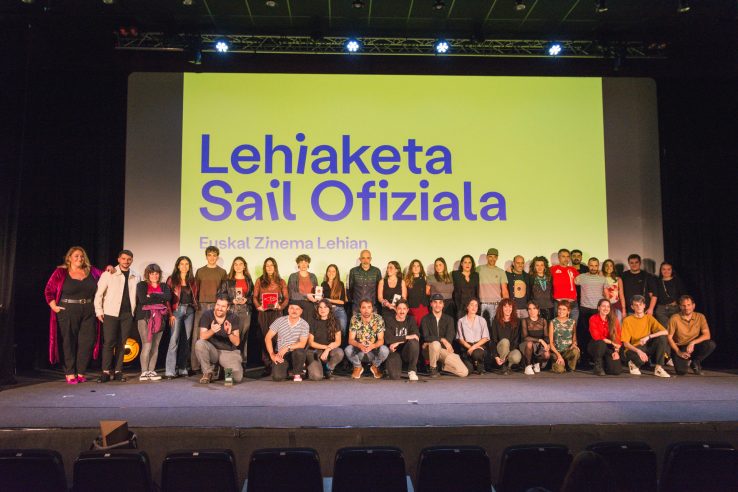"If you collect grief, you must also collectivize joy."
- I met Anaís Córains-Páez because he was a friend of a friend, and slowly I realized it's a box of surprises. I knew I was making videos, and then I discovered it as a projection assembler and music, which made us dance a whole night with the collective Feminxst Projection Party. Knowing that I was an ecologist and spent four years in Galapagos, I realized I wanted to do an interview. The result is as follows.
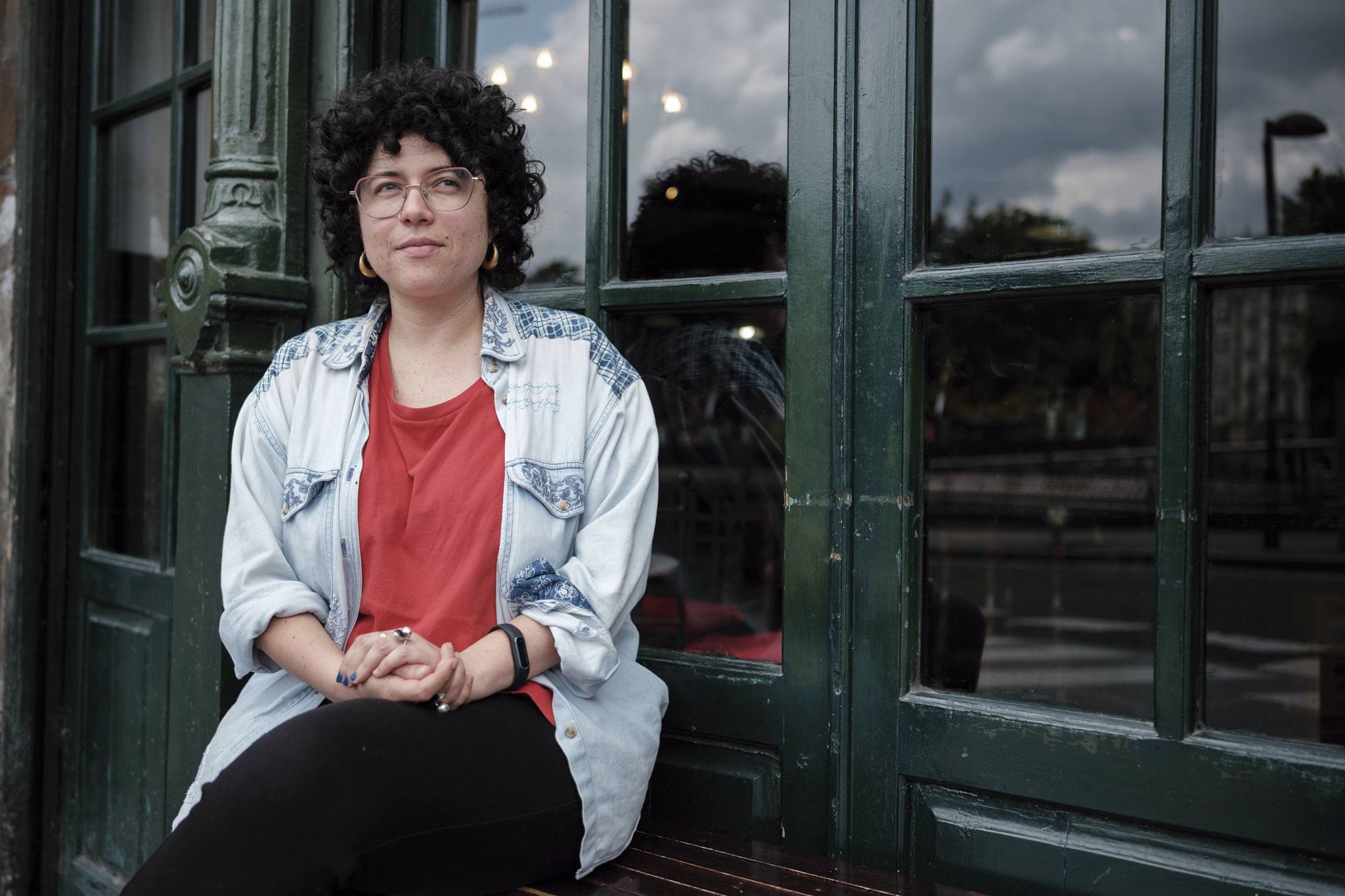
Anaís Córdova -Páez Quito, Ecuador, 1989
As creator, producer and curator, gender, ecology, autonomy and pleasure work from a decolonial perspective. It puts surveillance at the center, challenging movie creation processes and screenings. He has collaborated with artists and collectives from the Global South leading the short Lubricas (2016) and the Amazonia+Covid2020 series. He works as a producer at the Zinegoak festival, and is the curator of the UNSEEN festival Croacia.Miembro of the Lunádigas project, a group of people who have the capacity to do so have decided not to have children.
You're a videographer and an ecologist. How did it get to that crossing?
I was born in a country full of contrasts. I come from Quito, a great Ecuadorian city, but surrounded by mountains and nature. In an hour and a half you can move from one totally different ecosystem to another. And I think this influences the people that we live in Ecuador, the conception of the world. At least I have never thought the world to be one thing. I think it is a place with many statements.
If I am not mistaken, he started making videos in Galapagos.I
studied applied ecology and photography, and when I was doing my thesis in Galapagos, I started making videos. He worked with the native ants there, within a project that looked at the influence of climate change on the island. Ants are not as we think, each species has its own ecology. So if you know the identity of ants, you'll also know the state of the ecosystem; they serve as an indicator. And I was there, working with ants and in absolute solitude, and one day they told me from a scientific center: listen, you make movies too, and ...
And you stayed.
Yes, in the end I stayed four years after doing the thesis, it is not a little. He worked on the Dortoka Itsas project and made science outreach videos for the Galapagos Science Center. This center is attended by two universities: The universities of San Francisco in Quito, where I was studying, and Chapel Hill in North Carolina.
What would you highlight from your experience?
It's very different from the world we live in now and here. The social dimension of the Galapagos is very complex. On the one hand, evangelical churches have a lot of strength and, therefore, many women cannot wear trousers, only skirts. On the other hand, there is a strong collision between social space and conservation money.
And there will be a lot of people on the journey.
There, the estractivism of knowledge is very evident. Many foreign scientists go, collect data and go back. They come mainly from the USA, England, Germany and Australia, as scientific tourism is very expensive. And then the community has nothing left.
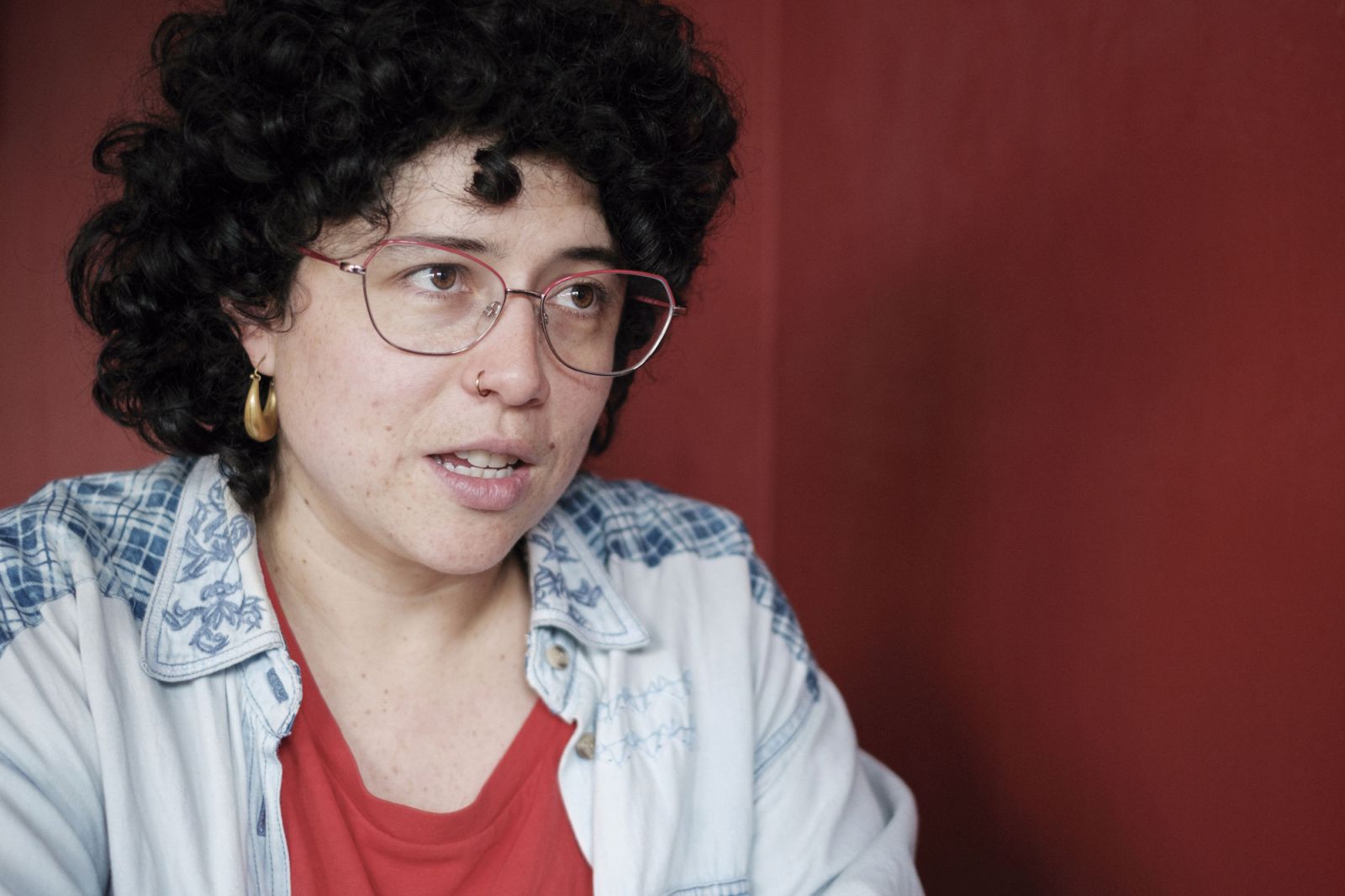
You worked on projects contemplating this game comunitario.En first,
documentary videos on scientific research were also made in Spanish, apart from English. Every Friday, we organized screenings at a cultural center to show movies. On the other hand, a friend and I offered swimming courses to indigenous women. It was a lot of fun. While friends took care of their children, I taught them how to swim.
It's striking that you don't know how to swim.
Swimming involves many things that are prohibited for women in patriarchal systems. You're with your body and you need patience to teach you how to swim. When I was there, that was my activism, because I couldn't say I was a feminist, let alone a lesbian.
Because feminist militancy is so important in your career. He returned to the continent and got into it.
I was working on the movement for legal abortion, safe and free, for decriminalization, because it's not the same legalization as decriminalization. In Argentina, in 2018-2019, they achieved legalization, but if by abortion they continue to criminalize women and their companions, and if abortion is still considered a bad word, this has to do with decriminalization. The struggle is not over, and in the Spanish State it is not over either.
The estractivism of knowledge is very evident in Galapagos. Many foreign scientists go, collect data and go back. In the United States, England, Germany and Australia stand out for their high scientific cost.
How is the situation in Ecuador?It was
decriminalized two years ago in cases of rape, but it rarely happens. We were struggling to do that since 2012. So a few years ago, we created a network among many to help in abortion. This network is present throughout Latin America and means that we are our own state. Hence came the idea of feminist aid, it is a political concept that we have created those of us who have collaborated in abortion, but also has links to the fight for rights in cases of feminicide and the representation of feminist justice.
What exactly is feminist aid?In the Ecuadorian city
of Ambato Vanessa was murdered, it was a case of feminicide and then we created Justice for Vanessa. Vanessa was 33-34 when she was murdered and had a daughter, Rafa. The man who killed her was not her partner, so her murder was not initially taken into the legal typology of feminicide. They fought hard for Vanessa's death to be considered feminicide. In this sense, we reflect a lot about what it means to help, what it means to be, and that existence is not a assistentialist action, I'm not because here it makes me sad, I feel a Judaeo-Christian feeling, it doesn't come from there; the truth is, if I'm not, I won't change things, and I'm going to be because if you kill my sister, they can also kill me tomorrow. It's not just a struggle for the other, it's also for your life.
Coming to the world of film, in 2018 he started as a programmer in La Orquídea, a great festival
ecuatoriano.En Latin America produced great shocks and the feminist movement gained great strength with the VivasNosWanted and NiUna Less movements. In this sense, there was a need for registration and production and, along with other colleagues, I assumed the communication of the marches. We made videos and performances, among others. I had a lot of collective productions, and one day I was asked if I wanted to be a programmer at a festival in southern Ecuador. Sure, I said. I programmed the gender film section and it was amazing.
Count?
We released a documentary about Chavela Vargas that was beautiful. The projection was realized in principle in an open space, but since the Chavela was a lesbian and alcoholic, the municipality censored the act. So we did it in a theater, 300 people were coming in, and I remember that night I was really nervous, I was thinking, "Wow." “Wow, we’ve managed to put the film, I hope people come.” And all of a sudden, the room was filled, and women came from about 50-60 years old, among friends, singing songs from the Chavela. I cried, saying it was amazing, and that at the time we were doing more than in all the talks against LGBTIphobia.
Later they started organizing the festival EQUIS.Como I managed
well in the Orchestra they called me from other festivals, and so I met the other two directors of the festival Equis. EQUIS is a feminist film festival that this year celebrates its fifth edition. At the same time, I started making video clips with rap feminist singers, and I worked a lot with the indigenous movement in the Amazon. I realized that I liked cinema as a space of sensory, of exploration of sensations and narratives, where you have things that you can't imagine.
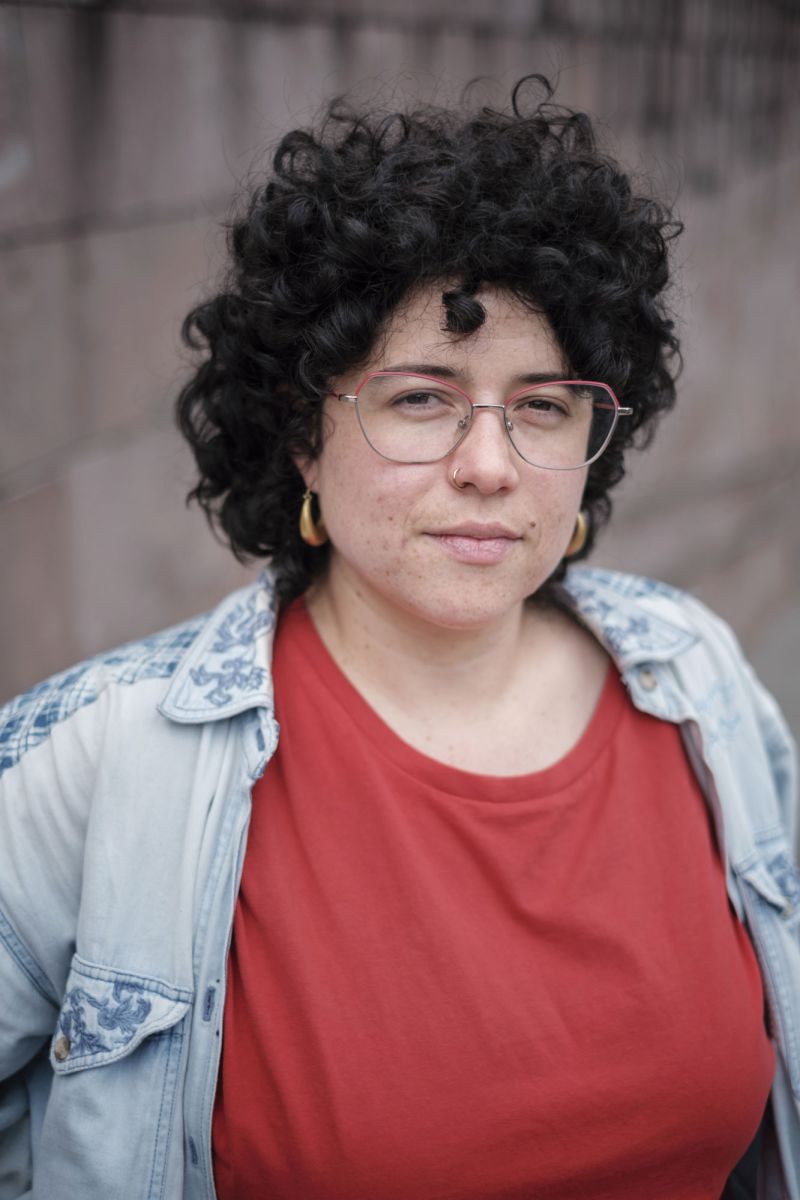
And from there to Euskal Herria. In the course of 2021-2022, he held a master curator at the Elias Kerejeta film school in San Sebastian.
Before I came, I did another master's degree in Ecuador, at the Andean University of Simón Bolivar, on cultural studies, arts and visual studies, from a decolonial perspective. But I wanted one more practical thing. The San Sebastian Film School has all the toys, cameras and laboratories you want, allowing you to explore. I had an analogue photograph, and now I wanted to make analogue films. There are not many sites in the world that can do this. And the chemicals are also there. There is only one laboratory in Latin America, in Brazil, but you have to send the material to Europe to digitize it and it is very expensive. So when I got here, I went into the lab to experiment.
You have also created a comunidad.He
made great friends in school, we have all been eager to collaborate, not necessarily by the structure of the school, but because people came to the movies because of that desire for experimentation. Others don't live that way, and it's OK, but many of the school members want to explore cinema from such a material place, and that vision is very beautiful, although it's very difficult to do it right now. Because film is an elitist place, I accept it. I have a great privilege because I have been able to come to San Sebastian to do a master's degree. First, a master's degree, second in Donostia and, finally, in the field of cinema. But every time I go to Ecuador and if you want to digitize some material, I bring it.
Have you been there recently, no?
Yes, it brought a lot of things.
And he was also recording.
Yes, with a Super 8. I wanted to talk about my life, about nativity, but not so much about autobiography, I wanted places that come across universality, like gentrification. Gentrification finds us everywhere, in one way or another. In my case he found me in my childhood house, in my mother's house, outside of Quito, where everything was filling with house. And I started thinking about the meaning of the great colonization of the city in the countryside. And when we started talking about the rural-city-field relationship.
Do you have another project?What
I did at school. It refers to endometriosis and blood, as an important subject to the same extent by blood administration. The blood of Christ or the blood of pain is always mentioned. But I wanted to take blood as I was. Iron, fluid, structures.
Did you use it as a material?
Yes, in a movie with silver plates. Silver and iron produce a chemical reaction with light, resulting in another type of reaction. So I filmed it, and so Hematic was born. I created that film to graduate from school. At the starting point of my work there is always the idea of questioning and questioning, but not only in the content, but also in the process, I believe that the process is the key. If feminism has taught me something, it has taught me that the process is more important than the result.
Before I finish, I want to ask you about postporn. You have made a short film in this field entitled Lubricas.
We talked all the time about abortion, about violence, and there was a rupture: OK, when do we talk about pleasure and joy? So we got together and we started talking about postporn, we wanted to create images for pleasure, to represent us and to awaken our desire. One community wanted to do another porn. We wouldn't be banning porn, in short, we talked about abortion as an attitude of freedom, decision and autonomy, so we decided we wouldn't ban anything. The opposite: we will do our porn, the one that represents us, with different bodies and showing pleasure.
"It's amazing. These squads stop the police twerk. And will you tell me that the body is not political?"
In short, it is about considering pleasure and body as a political thing.
I believe that this point is very present in Latin America: the struggle and the party are close. The party and dance for us are related to struggle, to politics. The appropriation of public space by women is a political act in itself. What is going on with the new generations? I mean, my mother's didn't go out into public space as my generation's. In many demonstrations in Latin America twerk-squadrons are organized against the police [twerk is a dance that consists in shaking the ass].
Excuse me for telling you, but twerk-squadrons, what a fantasy.
It's amazing. These squads stop the police twerk. And will you tell me that the body is not political? If I miss Euskal Herria, that's right. In demonstrations, nobody says anything. But well, OK, it's another culture. The truth is, we started to reclaim the place of pleasure and the party. If you collect grief, you must also collectivize joy. Because if you don't, the body gets tired and a body, if you're tired and you don't feel satisfied, doesn't resist patriarchy.
Itoiz, udako sesioak filma estreinatu dute zinema aretoetan. Juan Carlos Perez taldekidearen hitz eta doinuak biltzen ditu Larraitz Zuazo, Zuri Goikoetxea eta Ainhoa Andrakaren filmak. Haiekin mintzatu gara Metropoli Foralean.











